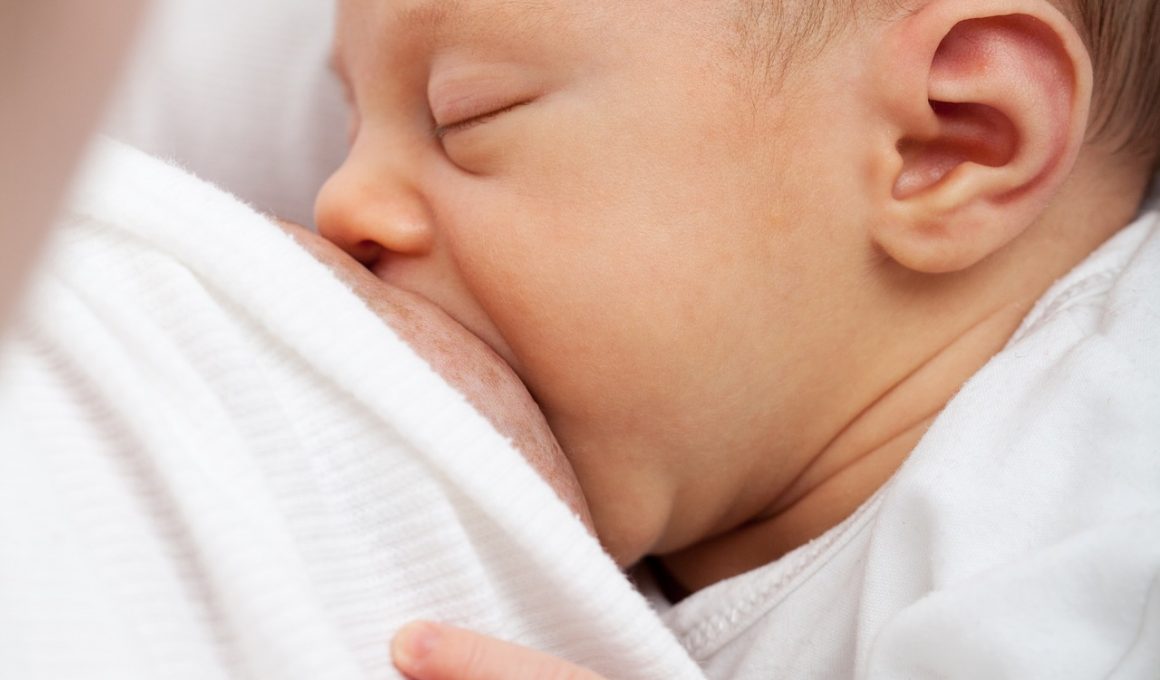Breast milk provides the appropriate amount of calories and optimal nutrition to support the growth and health of your baby. This is why breast milk is known as the gold standard for infant nutrition.
Not only is breast milk super healthy for your baby, but it also has benefits for your health. It may help reduce the risk of certain medical conditions like heart disease and diabetes later in life.
Because it takes a lot of energy to produce breast milk, it is very important to consume nourishing foods during breastfeeding.
Having a balanced and healthy diet may help you with:
- producing breast milk
- feeling better both mentally and physically
So why not read through to learn everything about a healthy breastfeeding diet?
Why is it so important to follow a healthy diet while breastfeeding?
Breast milk is the best source of nutrients for your baby, save for vitamin D, during the first 6 months.
It is made up of
- 87 percent water
- 3.8 percent fat
- 1.0 percent protein
- 7 percent carbohydrate
Breast milk
- provides 60 to 75 kcal/100ml
- is essential for ensuring that your baby is getting all the nutrients they need to thrive
- promotes your overall health as well
But if your diet does not provide sufficient nutrients, it can affect the quality of your breast milk and your health.
In fact, the basic fat-protein-carb content of breast milk isn’t directly dependent on the foods and drinks you intake daily. Even women who aren’t well-fed can feed their babies since the body benefits from its own nutrient stores for milk production.
But being able to make milk on a less-than-adequate diet doesn’t mean you should. This is too risky for the mother’s short and long-term health. And it can potentially interfere with the mother’s milk supply.
Breast milk changes throughout your lactation period to meet your baby’s needs. The calorie content and composition vary. Making healthy food choices while breastfeeding will help you and your baby get the nutrients you need.
A varied diet affects the taste and smell of your milk as well. This means that your baby is exposed to different flavors, which is also good for your baby’s nutrition in the future.
What are the basics of a breastfeeding diet?
Producing breast milk places extra demand on your body and requires extra calories.
It’s estimated that your energy needs during breastfeeding increase by about 500 calories daily.
The need for specific nutrients increases, including protein, vitamin D, vitamin A, vitamin E, vitamin C, B12, selenium, and zinc.
This is why eating various nutrient-rich foods is important for your and your baby’s health.
A healthy and balanced diet for a breastfeeding woman should be composed of protein-rich foods, whole grains, fruits, vegetables, and high-fat foods.
On average, this is what you need to consume each day to ensure that you are getting what you need through your lactation period:
- Protein-rich foods: Eggs, yogurt, cheese, meat, lentils, beans, tofu, nut butter, etc.
- Whole grains: Oatmeal, brown rice, and barley to keep you energized.
- Vegetables and fruits: Aim for color and variety, and remember that potatoes don’t count as a vegetable because of their negative impact on blood sugar.
- High-fat foods: Avocados, low-mercury fish, nuts, and seeds contain good-for-you fats.
You also need these particular nutrients:
- Calcium: Getting enough calcium is important since breastfeeding draws from the mother’s calcium reserves. Cheese, yogurt, milk, collard greens, sardines, tofu, and chia seeds are good calcium sources.
- Iron: Try to eat iron-rich foods each day, like beef, chicken, eggs, beans, or fortified cereal.
- Vitamin C: Fruits and veggies like bell peppers, citrus, broccoli, and berries are loaded with vitamin C, an important antioxidant that helps protect your cells against the effects of free radicals.
- Omega-3s: Plan to eat two to three servings of foods with omega-3 fatty acids a week to promote your baby’s brain growth. Low-mercury fish like wild salmon and sardines are preferable.
- Choline: Your daily needs increase post-pregnancy from 450 to 550 mg. Getting this critical nutrient while breastfeeding supports your baby’s cognitive functioning.
Do I need extra calories when breastfeeding?
Breastfeeding requires energy, and your body burns calories to create this energy. The extra energy used each day to create milk is around 300 to 500 calories and can be even higher during the first few weeks.
You should check your diet with your doctor and ask if you should consume more calories.
Every woman is different, and your energy needs change during your breastfeeding journey.
You might need to eat a little more (about an additional 300-400 calories a day) to get the energy and nutrition to produce breast milk.
Many breastfeeding moms feel extra hungry during breastfeeding. This is because your body is working nonstop to produce breast milk for your growing baby. Eating several small meals daily, with healthy snacks in between, is a good way to keep your hunger in check.
To get extra calories, go for nutrient-rich choices like:
- a slice of whole-grain bread with a tablespoon of peanut butter
- a banana
- an apple
- 8 ounces (about 227 grams) of yogurt
After your baby starts eating solid foods at 6 months, you may reduce your calorie intake.
Dietary tips for breastfeeding mothers
The following tips are recommended by the Children’s Hospital of Philadelphia to help new mothers plan their diet while breastfeeding:
- Include protein-rich foods 2-3 times per day such as meat, poultry, fish, eggs, dairy, beans, nuts and seeds.
- Eat three servings of vegetables, including dark green and yellow vegetables, per day.
- Eat two servings of fruit per day.
- Include whole grains such as whole wheat bread, pasta, cereal, and oatmeal in your daily diet.
- Drink water to satisfy your thirst. Many women find they are thirsty while breastfeeding; however, forcing yourself to drink fluids does not increase your supply.
- Dietary restrictions from pregnancy do not apply to breastfeeding moms.
- Vegetarian diets can be compatible with breastfeeding. If you avoid meat, make sure you eat other sources of iron and zinc such as dried beans, dried fruit, nuts, seeds and dairy. If you avoid all animal products (vegan diet), you will need to rely on supplements such as B12 to ensure your baby does not develop any deficiencies.
Which foods do I have to eat while breastfeeding?
If you choose to breastfeed, certain foods will support you through maintaining energy and increasing milk supply.
Whole grains
Whole grains, including oatmeal, brown rice, whole-grain pasta, and barley, are rich in
- fiber
- minerals
- vitamins
- carbohydrates
- protein
- unsaturated fats
Their benefits include:
- They can help keep you full for longer.
- They can help your digestion system function properly.
- They can help maintain and regulate your blood sugar levels.
Salmon and sardines
Low mercury fishes like salmon and sardine are great sources of
- protein
- vitamins
- omega-3
They decrease inflammation. Salmon also contains vitamin D.
Consuming these foods will support your baby’s nervous system.
Beef
Eating beef can give you essential B vitamins and zinc, increasing your energy levels.
Look for grass-fed beef, which has
- less fat and calories
- more omega-3
It is also important to be sure that the beef you consume doesn’t contain any added hormones or antibiotics.
Eggs
Eggs offer
- protein
- vitamin B12
- vitamin D
- folate
Experts say that the most important nutrient in eggs is choline.
Choline is necessary for nervous system development and for building cell structure.
Leafy greens
Greens like kale, collard greens, spinach, and cabbage are full of
- vitamins A, C, E, and K
- fiber
Legumes
Legumes contain
- vitamin K
- antioxidants
- calcium
Add black beans, garbanzo beans, and lentils to your diet.
According to a study, legumes play an important role in preventing many health conditions.
Sweet potato
Sweet potato is a great source of
- fiber
- vitamins
- minerals
Eating just one medium sweet potato (with the skin on) daily meets the daily recommendation of vitamin A.
It is also an excellent source of potassium.
Sweet potato
- promotes gut health
- may have cancer-fighting properties
- supports healthy vision
- may enhance brain function
- may support your immune system
Nuts and seeds
Most nuts are
- high in protein
- low in saturated fats
They contain no cholesterol.
Sesame seeds are high in calcium and copper and support immune function and red blood cell development. Don’t consume them whole, as they will pass through the digestive tract without releasing any benefits. Husked and crushed options are ideal.
Apricot
Apricot is full of fiber, vitamins, flavonoids, and potassium.
Eating apricots
- helps strengthen blood vessels
- reduces inflammation
- supports healthy blood pressure
What foods do I have to avoid while breastfeeding?
There are certain foods and drinks you should avoid while breastfeeding.
High mercury fishes
These fish include swordfish, king mackerel, tilefish, shark, marlin, and bigeye tuna.
Normally, breastfeeding mothers are recommended to consume 8-12 ounces of low-mercury fish a week since it’s a great source of DHA and EPA – two omega-3 fatty acids that are hard to find in other foods.
But avoid high mercury fishes.
Processed foods
Processed foods contain chemical additives.
They are high in calories and contain added sugars and fats that are unhealthy for you and your baby.
You should always check food labels when shopping and choose the least-processed foods possible.
Foods that hurt your baby’s tummy
This is something you will learn about by trial and error.
Most breastfeeding mothers can eat various foods without affecting their babies. But every baby is different. If you notice that your baby is fussy, sleepless, gassy, or has a rash, diarrhea, etc., after you eat a particular food, get in touch with your baby’s doctor.
Caffeine
Caffeine passes into your milk, so too much caffeine can overstimulate your baby.
Newborns are more sensitive to caffeine than older babies.
Experts state that one or two cups of coffee or tea daily, amounting to 300 milligrams or less, are safe to consume. But more than that may lead your baby to feel irritable and sleepless.
Remember that caffeine is also found in some sodas, teas, chocolate, and over-the-counter medicines.
Alcohol
Alcohol passes through your breast milk. The American Academy of Pediatrics (AAP) suggests waiting at least two hours before you nurse again. This ensures that the alcohol has made its way out of your system.
Any alcohol in your bloodstream passes on to your baby through your breast milk, which may pose risks to your baby’s health.
Alcohol can also change the flavor of your milk, which may be distasteful to your baby.
Consuming alcohol regularly (aka heavy drinking) can also decrease your milk supply.
Cow’s milk
Some babies may be allergic to cow’s milk protein from their mother’s diet and may develop rashes, eczema, diarrhea, bloody stools, vomiting, or colic.
If your baby has a cow’s milk allergy, you must exclude all dairy products from your diet.
Fortunately, babies usually outgrow their intolerance to cow’s milk. So eventually, you can add it back to your diet.
But if your baby continues to have trouble with it, you’ll need to take a calcium supplement to provide your baby with the necessary nutrients.
How much water should I drink while breastfeeding?
Experts recommend that you drink more water than usual while breastfeeding. So you can drink at least 8 cups alongside the fluids from fruits, vegetables, and other sources.
To ensure you get enough water, you can drink a cup at every nursing session.
Your exact need for water depends on
- how often you’re breastfeeding
- your activity levels
- weather
Your milk production may not be affected unless you are seriously dehydrated.
Be sure to drink whenever you feel thirsty.
Not drinking enough water can cause issues like urinary tract infections, fatigue, and constipation.
What can be the most nutritious and delicious food choices while breastfeeding?
Eating a variety of nutrient-dense, whole foods is important for your and your baby’s health while breastfeeding.
Below you will find some healthy food choices:
- Fish and seafood: Salmon, seaweed, shellfish, sardines
- Meat and poultry: Chicken, beef, lamb, pork, organ meats (such as liver)
- Fruits and vegetables: Berries, tomatoes, bell peppers, cabbage, kale, garlic, broccoli
- Nuts and seeds: Almonds, walnuts, chia seeds, hemp seeds, flaxseed
- Healthy fats: Avocados, olive oil, coconut, eggs, full-fat yogurt
- Fiber-rich starches: Butternut squash, sweet potatoes, beans, lentils, oats, quinoa, buckwheat
- Other foods: Tofu, dark chocolate, sauerkraut
What about being a vegetarian and breastfeeding?
Below you will find some tips to follow while breastfeeding if you are a vegetarian:
Choose foods rich in iron, protein, and calcium
Lentils, enriched cereals, leafy green vegetables, peas, and dried fruit, such as raisins, are rich in iron. To help your body absorb iron, eat iron-rich foods with foods high in vitamin C, such as citrus fruits.
Soy products, legumes, lentils, nuts, seeds, and whole grains are good protein sources. Eggs and dairy are good options, too.
Dairy products and dark green vegetables are good sources of calcium. Other options include calcium-enriched and fortified products, such as juices, cereals, soy milk, soy yogurt, and tofu.
Consider supplements
If you are a breastfeeding vegetarian, you should discuss supplements with your healthcare provider.
Normally your healthcare provider will recommend a daily vitamin B-12 supplement that is normally found in animal products.
If you don’t eat fish, you should talk to your healthcare provider about taking an omega-3 supplement.
You and your baby need vitamin D. Cow milk, some cereals, and sunlight are sources of vitamin D.
You should consult your healthcare provider about taking a vitamin D supplement since its absence can cause health problems.
How to ease hunger while breastfeeding
Breastfeeding burns more calories than any other activity. This is one reason why breastfeeding mothers get hungry quite often.
Below you will find some important tips to ease hunger while breastfeeding.
Eat regularly
Eating regularly and consistently is important. When you feel hungry, grab a healthy snack, make a smoothie, or have a meal.
Limit your sugar intake
Sugary diet choices give you an initial burst of energy. However, your energy levels will decrease shortly after, leading to cravings for high-sugar treats and comfort eating.
If you have sweet cravings, either opt for something with natural sugar (like fruits) or monitor your processed sugar intake with care and precision.
Focus on nutrients
Make most of your meals with vegetables (1/2 of your plate), go for whole grains (1/4 of your plate), and don’t forget protein power (1/4 of your plate).
Eat more protein
Delicious high-protein foods for breastfeeding are:
- Eggs
- Oily fish like salmon and sardines
- Lean meats and chicken
- Nuts
- Yogurt
- Oats
- Quinoa
Should I eat at night while breastfeeding?
You may need to snack during nighttime feeds (especially in the first weeks) since you burn energy while feeding your baby.
Bananas are a good night-time snack as they are high in potassium, promoting good sleep.
References: mayoclinic.org, kidspot.com.au, whattoexpect.com, healthline.com, hopkinsmedicine.org, webmd.com, hsph.harvard.edu, babycenter.com, chop.edu, health.clevelandclinic.org,










